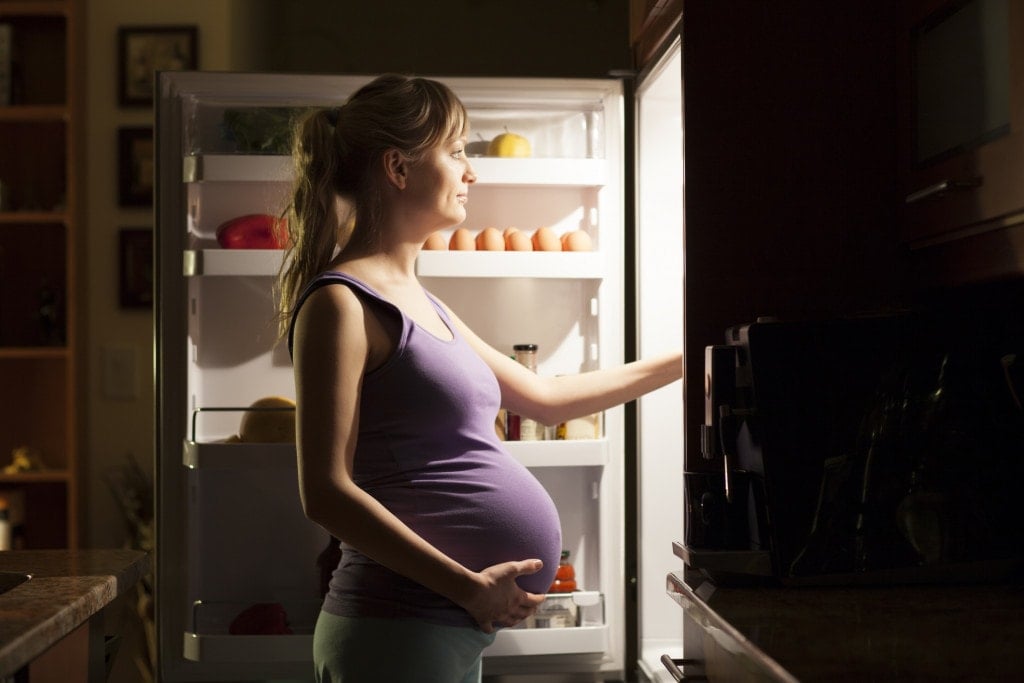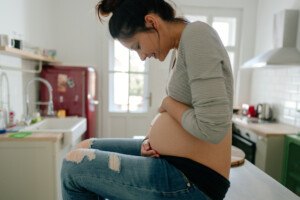After the initial congratulations for your pregnancy confirmation appointment, your doctor may hand you a pamphlet or quickly go over everything you can and can’t eat while pregnant. With the whirlwind of finding out you’re having a baby, the excitement of seeing that baby on the ultrasound, and all the other information thrown at you, it’s likely that this information doesn’t quite stick.
There are many different opinions and approaches to eating while pregnant. Some women may be so sick that all they can eat is toast in their first trimester. Other women may have weird cravings and eat pickles dipped in peanut butter (it happens!). Regardless of your appetite and cravings, there are certain foods you should avoid throughout your pregnancy.
Foods You Shouldn’t Eat While Pregnant
Avoid eating these foods when pregnant.
1. Raw or Undercooked Meat
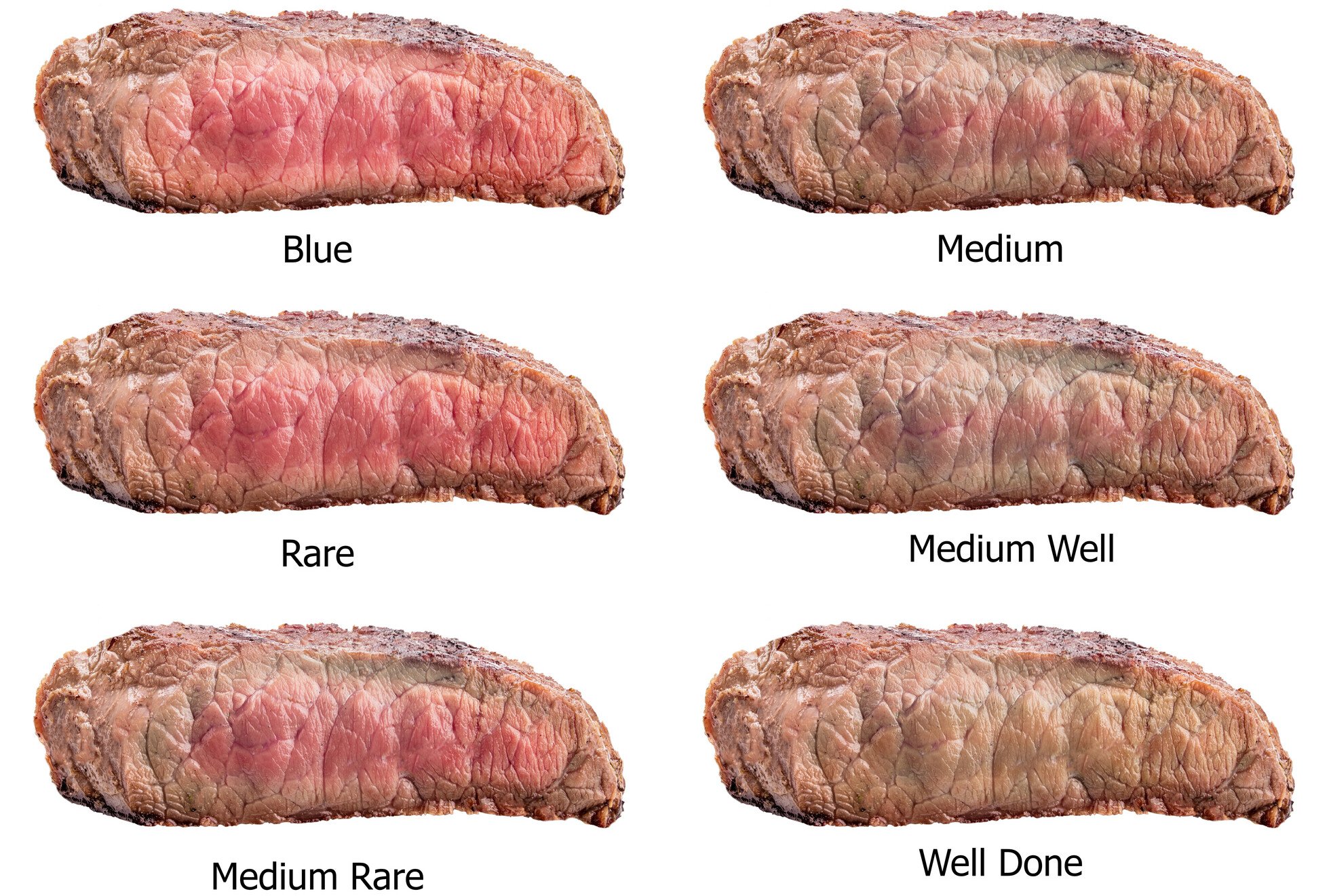
Protein from meat is essential to help a growing baby.6 But it’s important to be careful about how that meat is cooked. Avoid raw meats entirely, and ensure that any meat you order is fully cooked.1 Unfortunately, this means you can no longer order that steak medium rare or enjoy a tartare of any kind. Most restaurants are good about this, but it never hurts to double-check. When cooking at home, aim for a temperature of 165 F for chicken, 160 F for ground meat, and 145 F for whole cuts.1
Deli meats and hot dogs are among the most common no-no’s in pregnancy.1 Deli meat has a high chance of containing listeria, which can be extremely dangerous to a growing baby.1,4 If you’re craving a turkey sub, ask them to heat it for you, or you can heat the meat in your microwave when you get home.7
2. Seafood High in Mercury
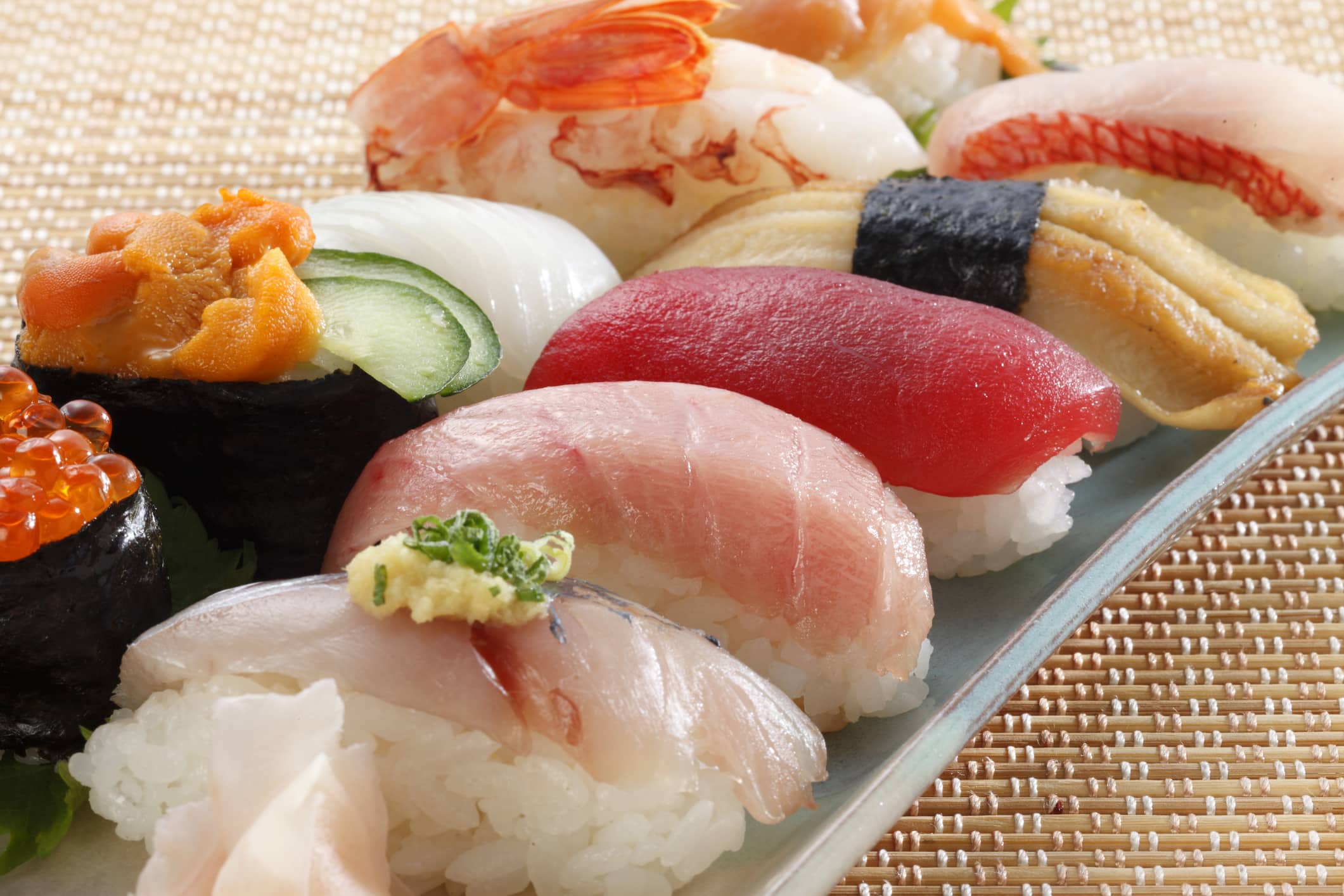
Mercury is a big concern in pregnancy, as too much of it can lead to developmental delays.1 So, it’s important to avoid fish with high levels of it. This includes:1,2,5
- Bigeye tuna
- Marlin
- Swordfish
- Tilefish
- Shark
- King mackerel
- Orange roughy
Canned tuna contains mercury, but the amounts are small enough that the American Pregnancy Association recommends eating it in moderation, about once a month.1 Pregnant women should also avoid raw and undercooked seafood, including sushi, raw oysters, scallops, and clams.1,2 Instead of your usual spicy tuna roll, opt for a cooked roll like shrimp tempura. You should also avoid smoked salmon, lox, and nova.1,2,8
Related: Safe Fish During Pregnancy: Good and Bad Seafood Options
3. Vegetables: Raw Sprouts
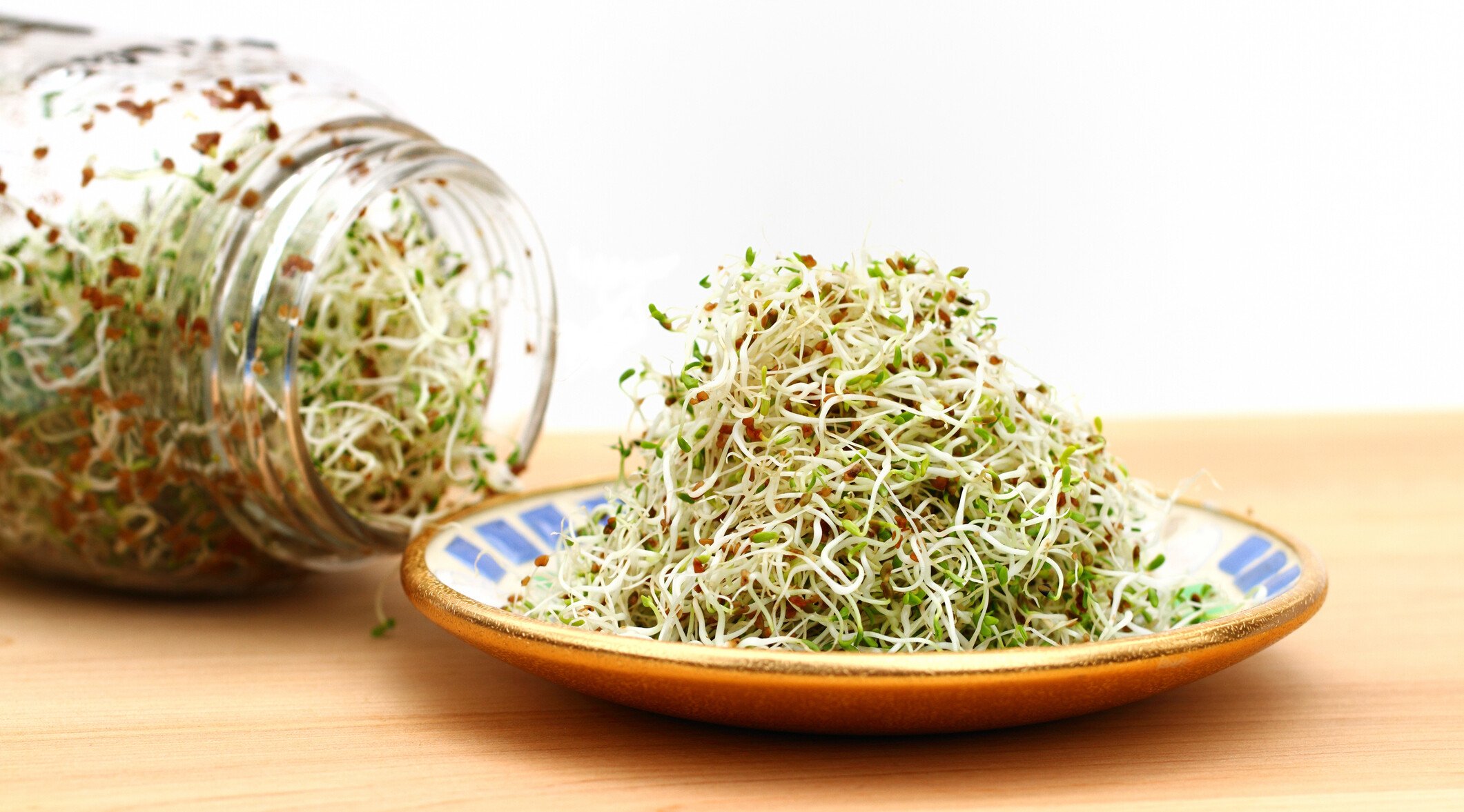
Veggies are great during pregnancy. And if you can stomach them, the more, the better! The only thing to watch out for with vegetables is how they’re washed.1 You likely don’t need to worry about popular restaurants, which have guidelines to follow for washing their produce. But if you’re washing them at home, be thorough about it. Veggies can carry bacteria that can pass to you if not washed correctly.2
As for avoiding, there’s only one type of vegetable you should take off the menu completely: raw sprouts. Steer clear of alfalfa sprouts, mung beans, clover, and radish.1,2
4. Unpasteurized Products
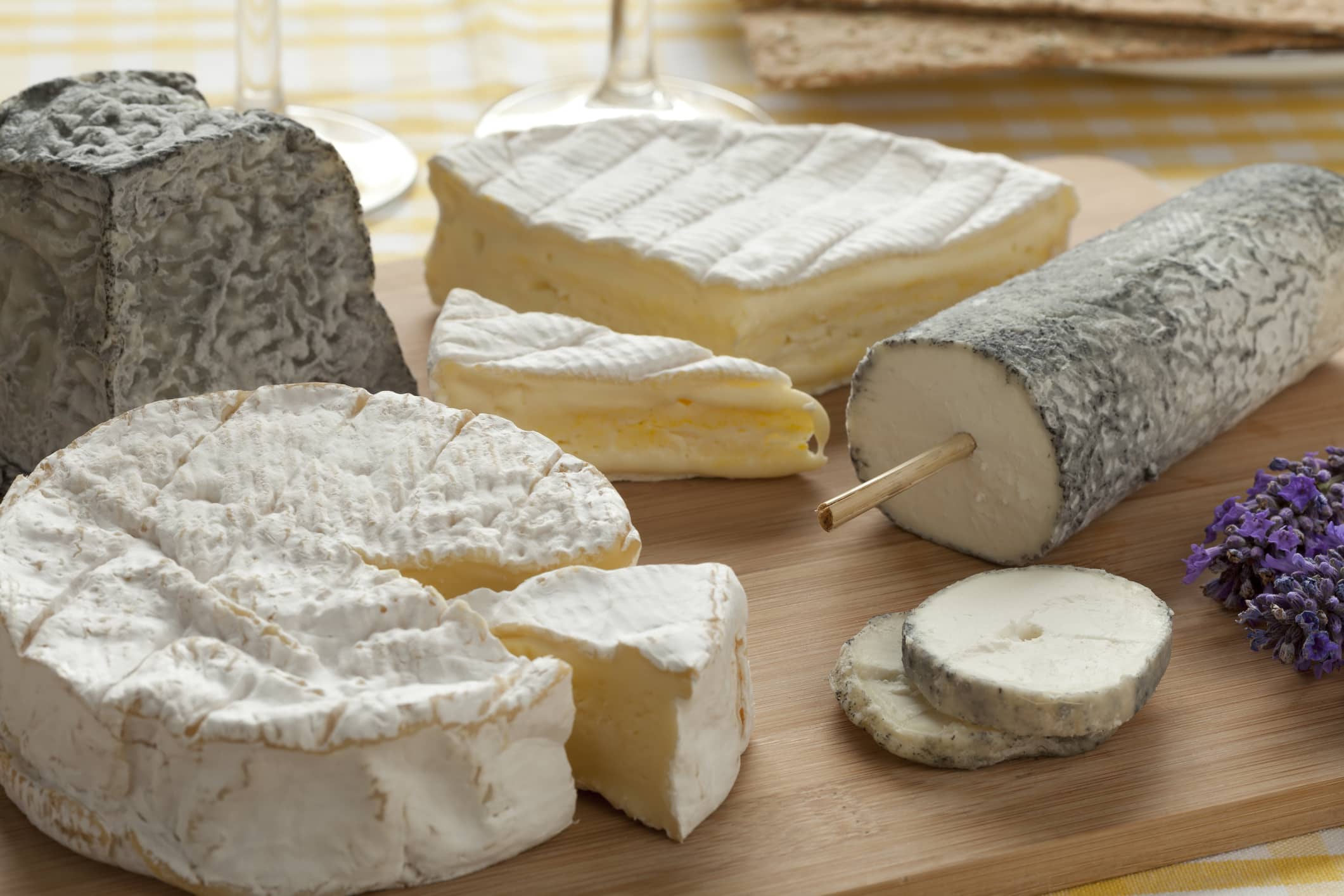
You’ll often hear the word “unpasteurized” when looking at things you can’t eat during pregnancy. Unpasteurized items have a higher risk of containing harmful bacteria like Listeria or E. coli.1,3 When an item is pasteurized, it kills those bacteria, making it safe for pregnant women to consume.1,3,9 The most common things to watch out for are soft cheeses such as brie, feta, and queso fresco.1,2,3 If these items have a “pasteurized” label, enjoy them! But always be sure to triple-check the label or ask the waiter before indulging.
You should also avoid fresh-squeezed and unpasteurized juices.1,2,3 If you can’t go without your fresh-squeezed morning beverage, boil it for at least one minute before enjoying it.3
5. Raw or Undercooked Eggs
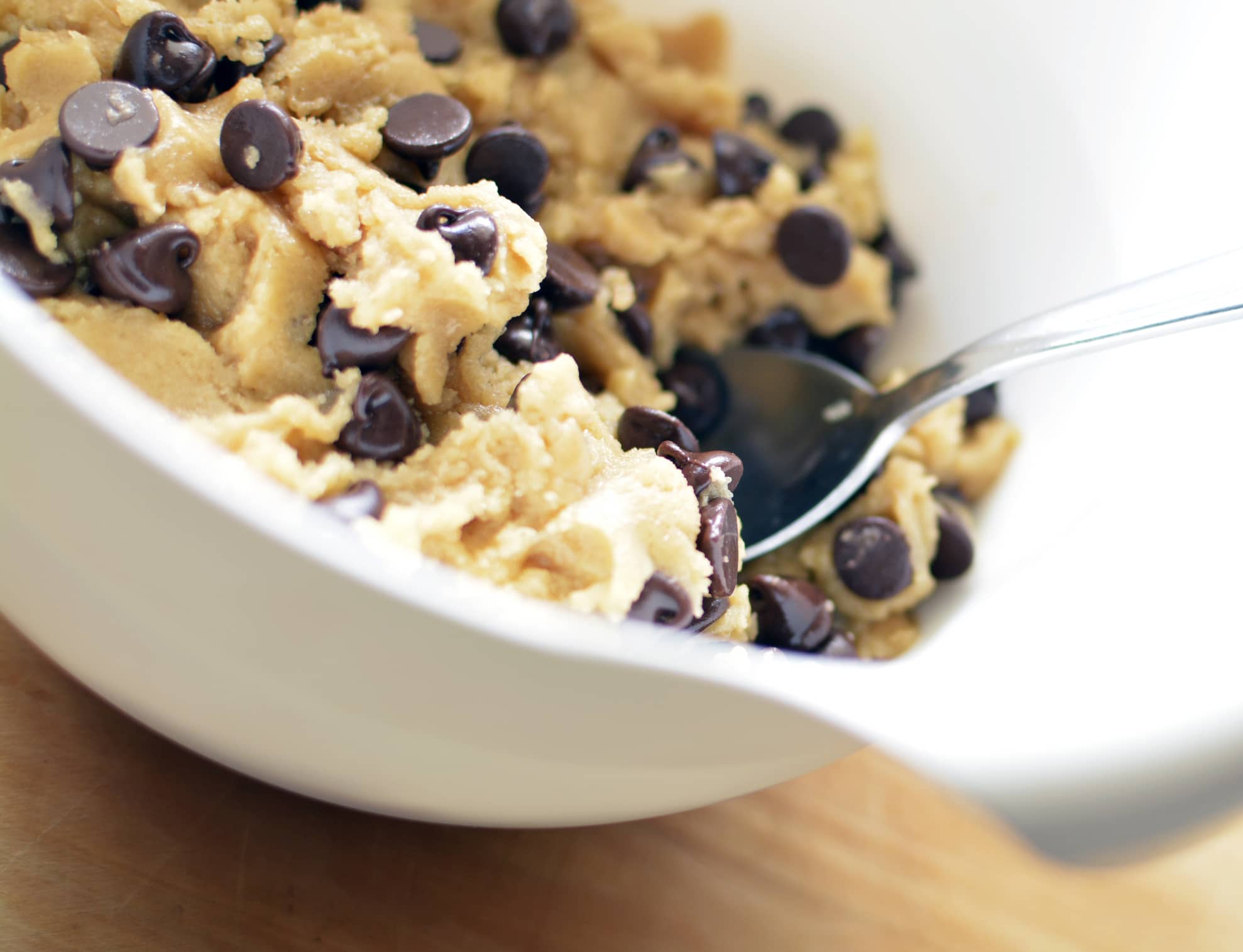
During pregnancy, you should avoid eggs that haven’t been thoroughly cooked, whether by themselves or as part of a sauce or dish.1,2,3 Many of our favorite dishes use raw egg, so try to avoid:1,2,3,10
- Raw cookie or brownie batter
- Caesar dressing that isn’t pasteurized
- Eggs Benedict
- Hollandaise sauce
- Tiramisu
- Eggnog
When making a casserole or egg-based dish at home, ensure the temperature reaches 160°F.3
6. Caffeine

Don’t worry; you can still have caffeine — just in moderation!1,2 If you’re used to your double shot of espresso twice a day, you may want to limit that intake. The general rule is to stick to less than 200 milligrams of caffeine a day, including sodas and chocolate.1,2
7. Alcohol

While most of the above items have a “workaround” like heating or cooking it differently, there’s no moderation for alcohol. The rule across the board is to avoid alcohol altogether.1,2 If you crave a glass of wine a few times during pregnancy, consult with your doctor before taking a sip.
Although these may seem like many rules, don’t let yourself stress too much about what you can and can’t eat during pregnancy. Avoid the things above, and try to keep a healthy diet. But remember: you’re already the perfect mother to your baby, whether you just had veggies and rice for dinner or ordered a large pizza (for yourself).

